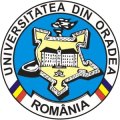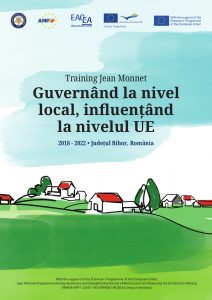Academic aim:
The aim of the training course is to raise awareness and strengthen the use of mechanisms for influencing the EU decision-making by the local level elected authorities. The argument for this approach lies in the fact that the EU’s multilevel governance represents a challenge for the process of governance in the Member States of the EU, especially in the newly entered states – as Romania. The existence of different decision-making levels (European, national, regional and local) makes the national actors (public authorities, civil society, business enterprises), but also the citizens, to be confronted with challenges regarding the efficient exercise of their competences, in this sui generis political system.
Target group:
The training course is addressed to the local counsellors and mayors from Bihor county – comprising municipalities and communes.
Learning objectives:
- to enhance the local counsellors and mayors’ understanding of the features of the European, national, regional and local governance;
- to familiarize the local counsellors and mayors with the channels and instruments available for them for participation in the EU’s multilevel governance and for influencing the EU decision-making process, on issues with a local impact;
- to develop competences regarding the use of channels and instruments available to the different actors from the local level – and, particularly, for the elected representatives from the local level, in order to influence the EU decision-making process, on issues with a local impact.
Structure of the course:
- The EU’s multilevel governance (concept, features, actors, challenges) and the EU decision-making process (EU institutions and bodies, EU inter-institutional relations, the European legal order). The local level in the EU’s multilevel governance: local public authorities – their place and role in influencing the EU decision-making process. Debates on the local level’s role and place in the EU’s multilevel governance – comparative approach of the experiences of the EU Member States and examples of best practices.
- The formulation and implementation of the European public policies – between the European and national levels. The principles of subsidiarity and proportionality. Debates. Comparative approach of experiences of the EU Member States and examples of best practices.
- Channels and instruments available for the actors (from different sectors) from the local level, for influencing the national and European decision-making process, on the European legislative proposals with a local impact. Debates. Comparative approach of experiences of the EU Member States and examples of best practices.
Documents:







